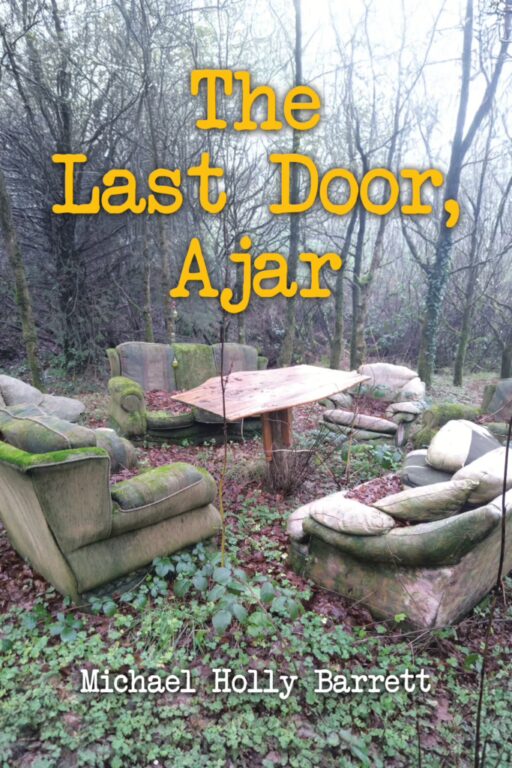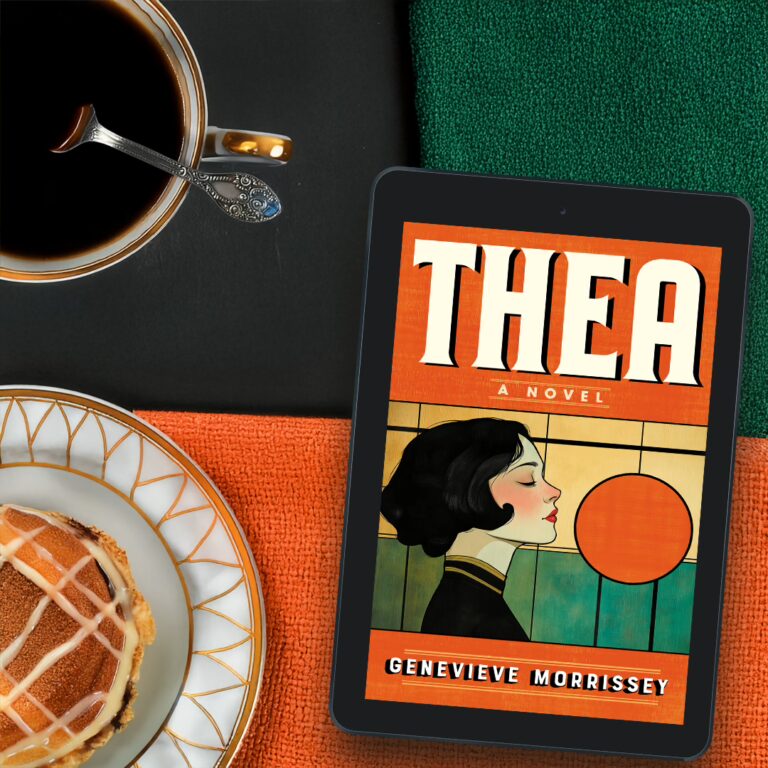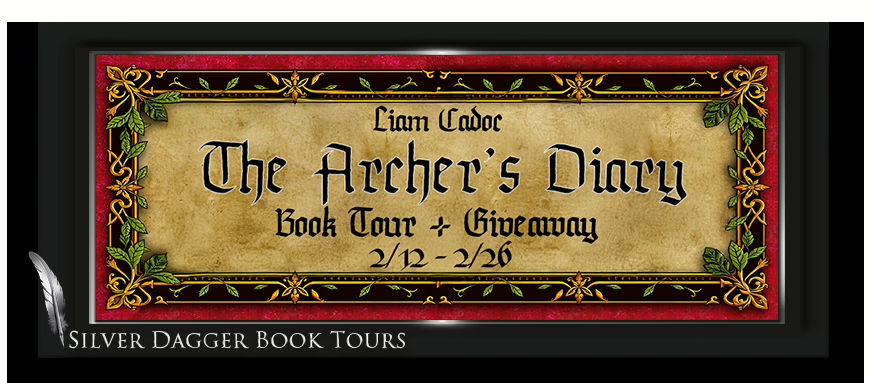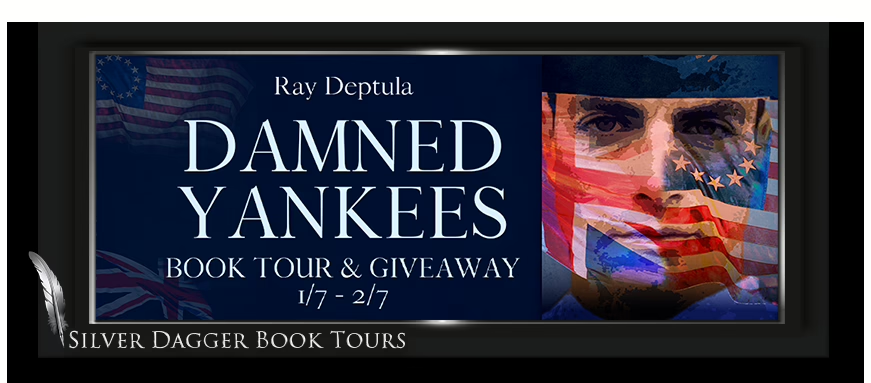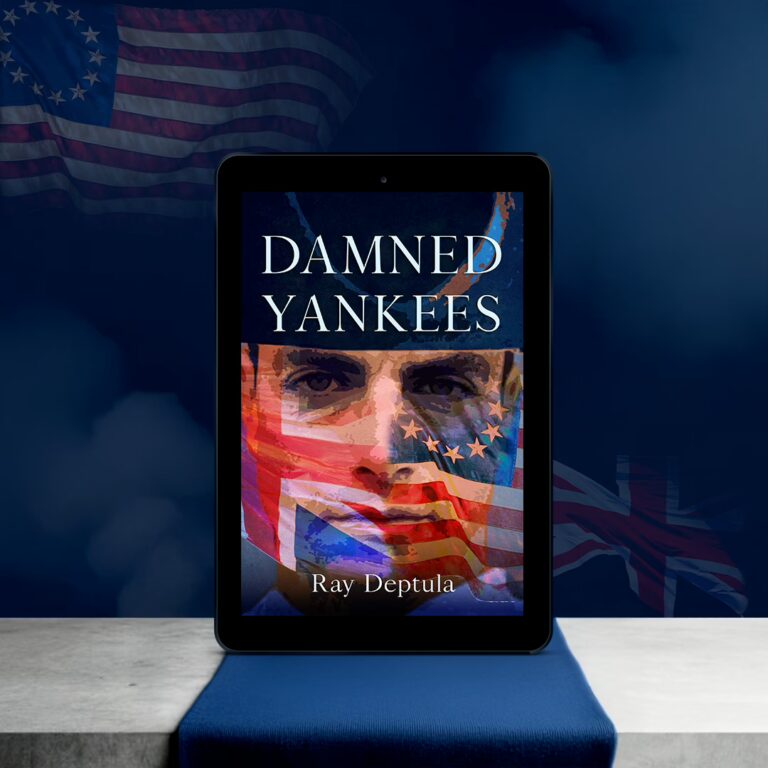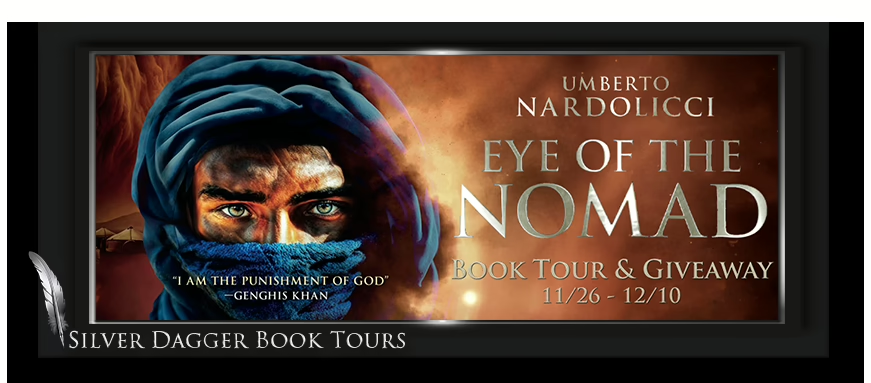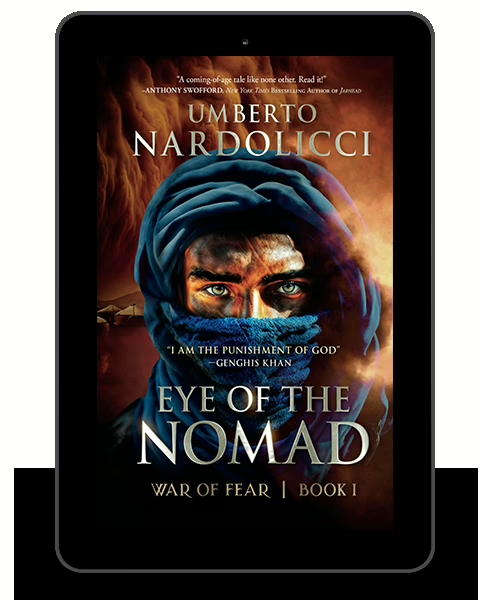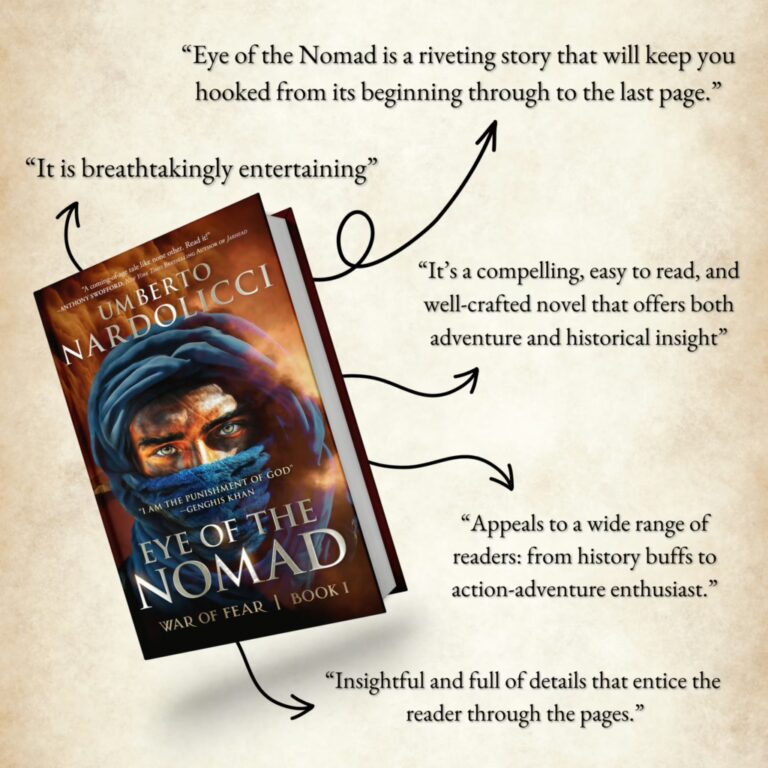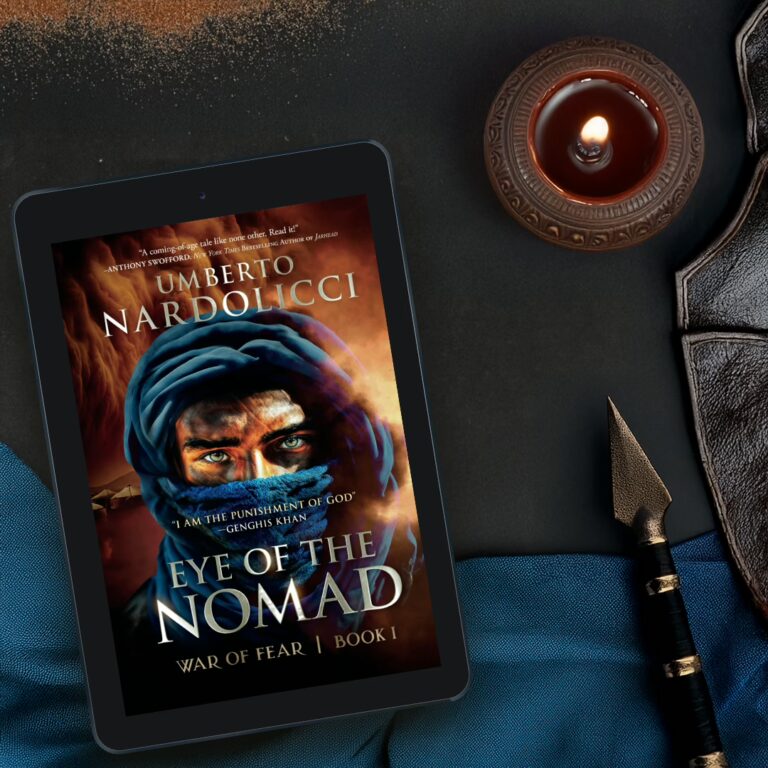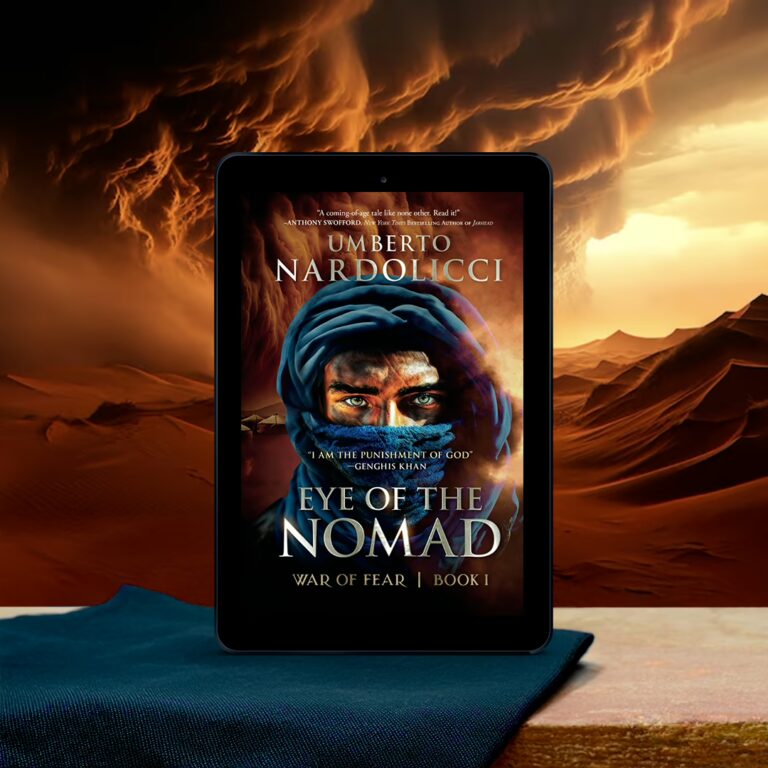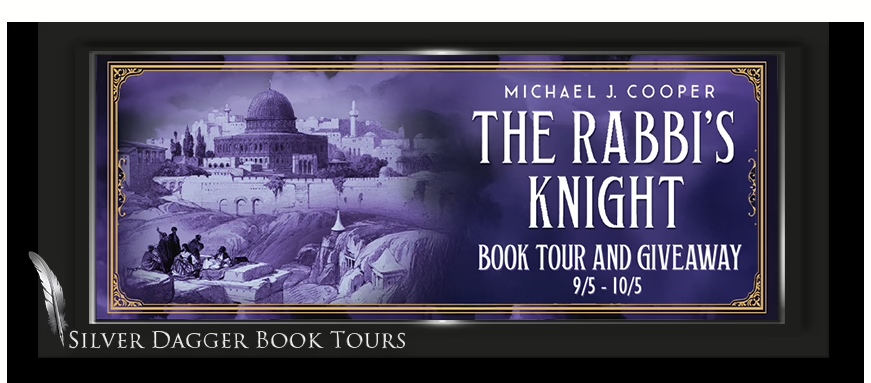
In possession of a cryptic ancient scroll, Rabbi Samuel, St. Clair and the others will risk everything to fulfill their shared and sacred destiny as guardians of the Temple Mount.
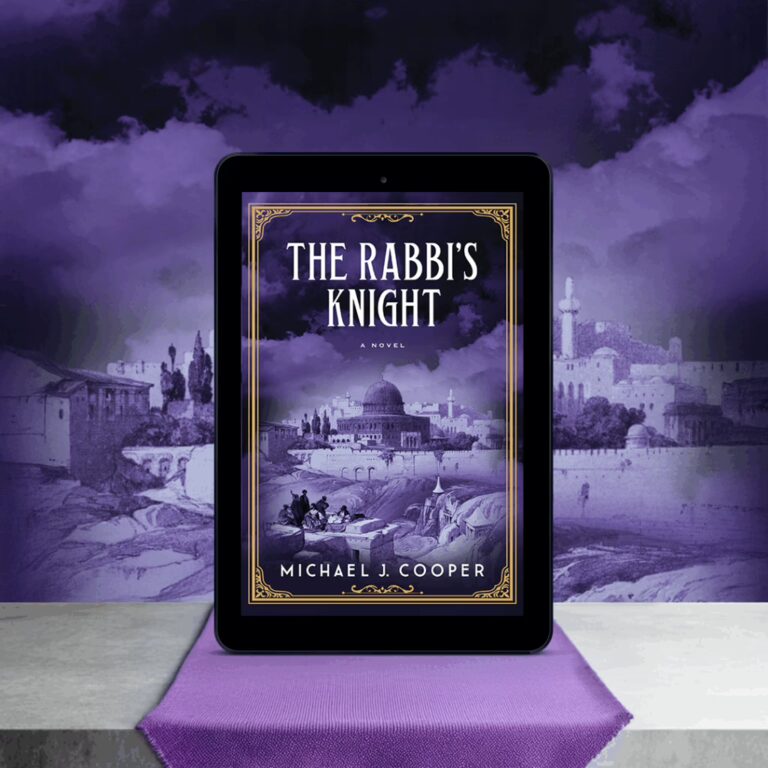
The Rabbi’s Knight
Prequel to Wages of Empire
by Michael J. Cooper
Genre: Historical Fiction
“The Rabbi’s Knight is instantly compelling and fascinating in its arcane plot and propulsive pacing. Literally, a page turner!” -Sylvia Boorstein, PhD, New York Times bestselling author of Happiness Is an Inside Job
“A well-written historical adventure story . . . with unexpected twists and turns that keep you hooked . . . an exciting and historically fascinating read.” -Andrew Kaplan, New York Times bestselling author of Blue Madagascar and the Homeland novels
The year is 1290. At the twilight of the Crusades, war-weary Knight Templar Jonathan St. Clair is garrisoned in the port city of Acre in the Holy Land. In possession of an ancient scroll with a cryptic inscription, he learns that it holds the key to unlock the secrets of Jerusalem’s Temple Mount.
But time is running out. Acre will soon come under siege, and the one man able to divine the scroll’s meaning, Rabbi Samuel of Baghdad, has been targeted for assassination. St. Clair apprentices himself to Rabbi Samuel and together they travel to Jerusalem.
On their pilgrimage, they are hunted by scheming emirs in the service of a bitter enemy of Rabbi Samuel. But they are aided in their quest by others: a brilliant young scholar, Isaac of Acre; a powerful young Scotsman, William Wallace; a learned Muslim mathematician, physician, and cartographer, al-Hasani; and a beautiful independent-minded woman, Zahirah, who avoids serving in an emir’s harem by hiding in a leper colony on the shores of the Sea of Galilee.
Rabbi Samuel, St. Clair and the others will risk everything to fulfill their shared and sacred destiny as guardians of the Temple Mount.
Amazon * Apple * B&N * Kobo * BookShop.org * Bookbub * Goodreads
Book Links:
Amazon: https://www.amazon.com/dp/B0FLF6XRQ2
Apple: https://books.apple.com/us/book/the-rabbis-knight/id6749653141
B&N: https://www.barnesandnoble.com/w/the-rabbis-knight-michael-j-cooper/1121698524?ean=9798888248140
Kobo: https://www.kobo.com/us/en/ebook/the-rabbi-s-knight?sId=6f84596b-25c4-412b-981c-9ecf4020db74
Bookshop.org: https://bookshop.org/p/books/the-rabbi-s-knight/8431e19228eea20b?ean=9798888248133&next=t
Bookbub: https://www.bookbub.com/books/the-rabbi-s-knight-by-michael-j-cooper
Goodreads: https://www.goodreads.com/book/show/239831974-the-rabbi-s-knight
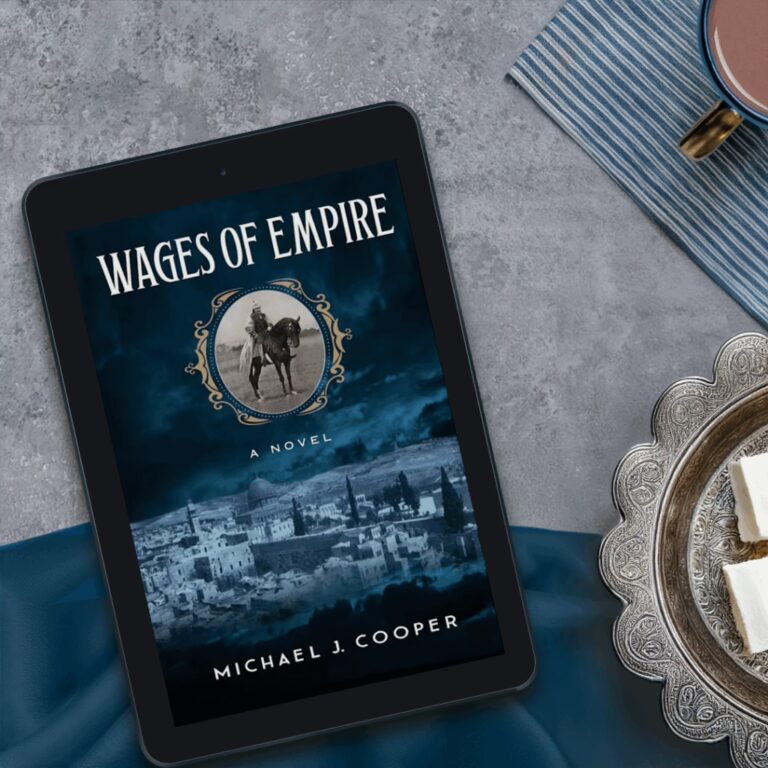
Wages of Empire
Book 1
Winner — 2025 Pacific Book Award for Best Historical Fiction
Winner — 2025 International Impact Award for Historical Military Fiction
Grand prize winner – 2022 CIBA Dante Rossetti Award for YA fiction
First place honors – 2022 CIBA Hemingway Award for wartime fiction
#1 Amazon Best Seller—Jan 2024—Historical World War I Fiction
In the summer of 1914, sixteen-year-old Evan Sinclair leaves home to join the Great War for Civilization. Little does he know that, despite the war raging in Europe, the true source of conflict will emerge in Ottoman Palestine, since it’s from Jerusalem where the German Kaiser dreams to rule as Holy Roman Emperor.
Filled with such historical figures as Gertrude Bell, T.E. Lawrence, Winston Churchill, Faisal bin Hussein and Chaim Weizmann, Wages of Empire follows Evan through the killing fields of the Western Front where he will help turn the tide of a war that is just beginning, and become part of a story that’s still being written.
“Masterful storytelling will keep you furiously turning the pages of this compelling (historical WWI) novel. A winner!”–Andrew Kaplan, New York Times Best-Selling Author of Blue Madagascar and the Homeland Novels
“The characters, historical and fictional, come to life on the page as the storyline drives relentlessly forward. Bravo!”–Matt Coyle, bestselling author of the Rick Cahill novels
“A beautifully written tale…exhibits seamless research in illuminating unforgettable historical and fictional characters…a tour de force!” –Professor Ronit Meroz, Dept of Jewish Philosophy and Talmud, Tel-Aviv University, Israel
“This superb historical novel is a must read…directly relates to issues we face today.” –Rizek Abusharr – Emeritus Director General of Jerusalem International YMCA
“Cooper has made this period of history come alive. It is a treat to read.” –Rabbi David Zisenwine, Ph.D. Professor Emeritus of Education, Tel Aviv University
“A Young Indiana Jones–style adventure.” –KIRKUS reviews
“Story is gripping and the characters that he describes come alive through his skillful writing. I couldn’t put it down!” –Rabbi Gordon Freeman, Ph.D., Rabbi Emeritus, B’nai Shalom, Walnut Creek, CA
Amazon * Apple * B&N * BAM * Kobo * Bookshop * Bookbub * Goodreads
Book Links:
Amazon: https://www.amazon.com/Wages-Empire-Michael-J-Cooper-ebook/dp/B0CKH2L2DY
Apple: https://books.apple.com/us/book/wages-of-empire/id6468759711
B&N: https://www.barnesandnoble.com/w/wages-of-empire-michael-j-cooper/1144127293?ean=9798888241875
BooksAMillion: https://www.booksamillion.com/p/Wages-Empire/Michael-J-Cooper/9798888241882?id=8952279777643
Kobo: https://www.kobo.com/us/en/ebook/wages-of-empire-1
Bookshop: https://bookshop.org/p/books/wages-of-empire-michael-j-cooper/20653785?ean=9798888241882
Bookbub: https://www.bookbub.com/books/wages-of-empire-by-michael-j-cooper
Goodreads: https://www.goodreads.com/book/show/199369144-wages-of-empire
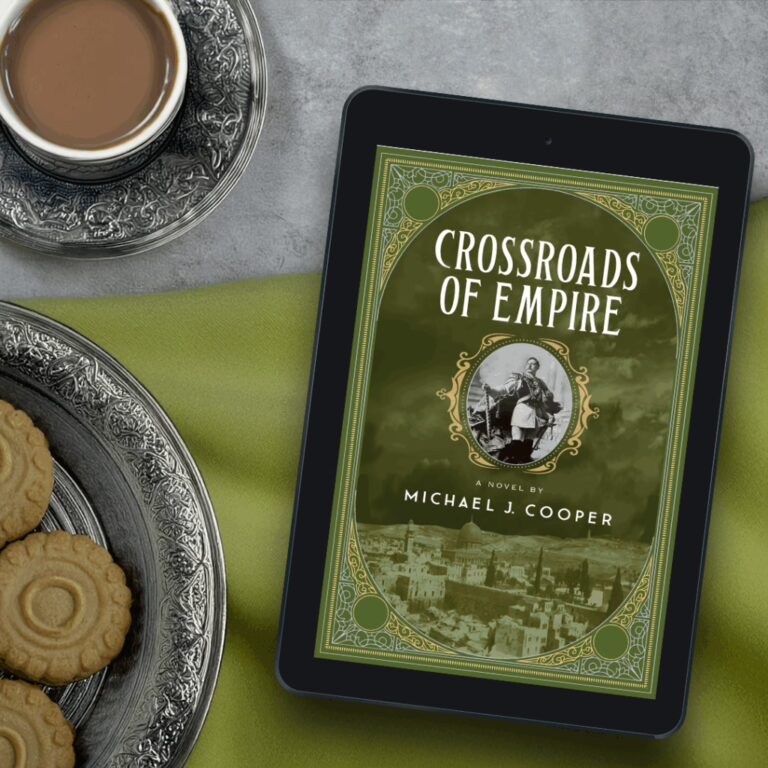
Crossroads of Empire
Book 2
Winner — 2025 International Impact Award for Historical War & Military Fiction
Winner of the 2024 CIBA Hemingway First Place Prize for 20th Century Wartime Historical Fiction
2024 SF Writers Conference Writing Contest Finalist-Adult Fiction
“. . . both a gripping page turner and a series of carefully observed character studies. Beautifully written in a voice and in details that capture the era, Crossroads of Empire is a must-read for readers of all ages” -Chanticleer Book Reviews
The story of Evan Sinclair that began in Wages of Empire continues in Crossroads of Empire. Having survived German artillery, poison gas, and friendly fire in helping to turn the tide of the war in its first months, Evan barely survives his hospital ship’s sinking by a German U-boat. Left with amnesia, he no longer remembers who he is.
Likewise, Evan doesn’t recall that, despite the European war, the true source of conflict is in Ottoman Palestine, since it’s from Jerusalem’s Temple Mount that Kaiser Wilhelm II dreams to rule as Holy Roman Emperor over Arabian oil reserves and the Suez Canal.
The Middle East Front soon explodes with pitched battles at Suez and Gallipoli as Evan’s story is interwoven with those of historical figures Gertrude Bell, T. E. Lawrence, Winston Churchill, Faisal bin Hussein, and Chaim Weizmann.
During his quest to recover his memory Evan will discover far more: love for his father, grief for his late mother, and hidden secrets of his bloodline-an unbroken lineage that stretches back to the Crusades and will determine his future role in the Great War.
“Cooper masterfully crafts a novel that intertwines vivid characters and complex themes, blending historical fiction with elements of mystery and intrigue. This unique combination makes it a must-read for fans of both genres.”
—BookTrib Review
“In page after page of Crossroads of Empire, I was thrilled with how the plot widened with various actors added as history unfolded one step at a time. The book picked up speed as it moved along with rising tension as disparate subplots charged forward to the conclusion. I loved it! Bravo!”
—Sylvia Boorstein, PhD, bestselling author, teacher of Buddhist Insight Meditation, and co-founder of Spirit Rock Meditation Center
“Crossroads of Empire dives into the tumultuous waters of World War I, presenting a thrilling narrative enriched by a blend of historical and fictional characters. Cooper’s writing is compelling and richly detailed, offering a tapestry of scenes that bring early 20th-century conflicts vividly to life.”
—Literary Titan Review
Amazon * Apple * B&N * BAM * Kobo * Bookshop * Bookbub * Goodreads
Book Links:
Amazon: https://www.amazon.com/dp/B0DLXXFVXY
Apple: https://books.apple.com/us/book/crossroads-of-empire/id6737786993
B&N: https://www.barnesandnoble.com/w/crossroads-of-empire-michael-j-cooper/1146286661?ean=9798888245132
BAM: https://www.booksamillion.com/p/Crossroads-Empire/Michael-J-Cooper/9798888245125?id=9371349831887
Kobo: https://www.kobo.com/us/en/ebook/crossroads-of-empire-1
Bookshop: https://bookshop.org/p/books/crossroads-of-empire-michael-j-cooper/21795830?ean=9798888245125
Bookbub: https://www.bookbub.com/books/crossroads-of-empire-by-michael-j-cooper
Goodreads: https://www.goodreads.com/book/show/219050197-crossroads-of-empire
About the Author

Michael J Cooper writes historical mysteries set in the Holy Land at major turning points of history—all the while subtly promoting the notions of coexistence and peace.
His books have won multiple awards and include; set in 1948 Jerusalem Foxes in the Vineyard (winner of the 2011 Indie Publishing Contest Grand Prize); set at the twilight of the Crusades in 1290, The Rabbi’s Knight (finalist for the CIBA 2014 Chaucer Award for historical fiction);
set at the start of WWI in 1914, Wages of Empire (winner of the 2025 Pacific Book Award for best historical fiction, winner 2025 International Impact Award for historical military fiction, the CIBA 2022 Grand Prize for young adult fiction as well as the Hemingway first prize for wartime historical fiction);
A sequel of Wages of Empire, Crossroads of Empire (winner of the 2025 International Impact Award for historical war & military fiction as well as first place in the 2024 CIBA Hemingway for 20th Century wartime historical fiction, placed as a finalist in the 2024 SF Writers Conference and won first prize honors in the 2023 CIBA Hemingway wartime historical fiction category).
A native of Berkeley, California, Cooper absconded to Israel after high school and spent the next eleven years studying and working there.
He lived in Jerusalem during the last year the city was divided between Israel and Jordan, studied at Hebrew University, and graduated from Tel Aviv University Medical School.
He returned to the US to specialize in pediatric cardiology, and after 40 years of practice, he continues to return to the Middle East for biannual volunteer missions serving Palestinian children who lack access to care.
Otherwise, he lives in Northern California with his wife and a spoiled-rotten cat. Three adult children occasionally drop by.
Website * Facebook * X * Instagram * Bluesky * Bookbub * Amazon * Goodreads
Author Links
Website: https://michaeljcooper.net
Facebook: https://www.facebook.com/michael.cooper.568089
Instagram: https://www.instagram.com/mjcoopmd/
Bluesky: https://bsky.app/profile/mjcoopmd.bsky.social
Bookbub: https://www.bookbub.com/authors/michael-j-cooper
Amazon: https://www.amazon.com/stores/Michael-J.-Cooper/author/B0076UW11I
Goodreads: https://www.goodreads.com/author/show/40695938.Michael_J_Cooper
Giveaway
$30 Amazon or Paypal
Follow the tour HERE for special content and a giveaway!
https://sdbook.promo/TheRabbisKnight





